
views
Alternate Ways to Say “Thank You for Your Understanding”

“I appreciate your flexibility.” Use this phrase to thank someone for accommodating you when there’s a change of plans. Changing plans abruptly can be an inconvenience for clients or colleagues, so acknowledging their willingness to work with you and make special arrangements can smooth things over (and demonstrate your professionalism). Example: “To confirm, the meeting will now take place on Thursday at 10:30 am. I truly appreciate your flexibility in finding a time to meet!”

“I greatly value your support and consideration.” This phrase can help you show thanks when someone supports your ideas and encourages you to reach your goals at work. It’s appropriate to say this to a manager who shows interest in your pitch or a client who decides to hire you based on one of your ideas or suggestions. Example: “Thank you again for listening to my pitch today and for the feedback after. I greatly value your support and consideration!” “Thanks for your encouragement” is another phrase you can use to thank someone for supporting you; it also works when thanking someone for being understanding and supporting you after you make a mistake. Example: “I know I’ve made a few mistakes, and I wanted to thank you for your encouragement as I learn the ropes.”
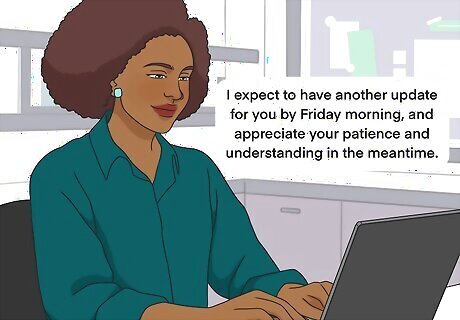
“I appreciate your patience and understanding.” It takes time to resolve issues—sometimes even more time than you might originally anticipate. That’s why it’s polite to thank people who show patience throughout the process, especially if there were inconveniences along the way. This is a great phrase to use when sending a progress update or thank you note after the fact. Example: “I expect to have another update for you by Friday morning, and appreciate your patience and understanding in the meantime.”
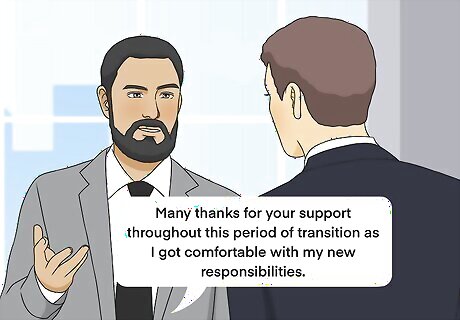
“Many thanks for your support.” After getting through a tricky situation or finally resolving a difficult decision-making process, it’s a good idea to thank people who helped you along the way. However, keep in mind that “Many thanks” is a little more casual than “Thank you” or “I appreciate your support,” so choose a phrase that feels appropriate for your situation. Example: “Many thanks for your support throughout this period of transition as I got comfortable with my new responsibilities.”
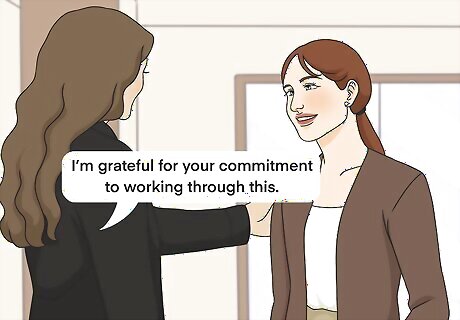
“I appreciate your dedication to helping me solve this issue.” When someone spends time working with you to fix something or work out a problem, it’s worth thanking them for their time and willingness to work with you. This could apply to a number of situations, from a customer bringing a concern to your attention to a colleague asking you to brainstorm solutions with them. Example: “Thank you for reaching out. I appreciate your dedication to helping me solve this issue and hope there are no more issues with the product going forward.” Other ways to say this include, “I appreciate your dedication to digging into this issue,” or “I’m grateful for your commitment to working through this.” All 3 phrases can be used interchangeably!
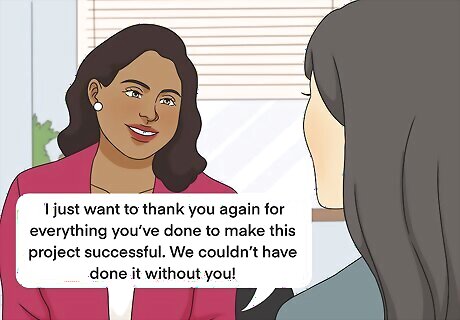
“Thank you again for everything you’ve done.” Try using this alternative phrase when someone goes above and beyond to help you with a request or solve a problem (and you’ve already thanked them before but want to do so again). “Thank you for everything you’ve done” expresses sincere appreciation—and paves the way for working together in the future. Example: “I just want to thank you again for everything you’ve done to make this project successful. We couldn’t have done it without you!”
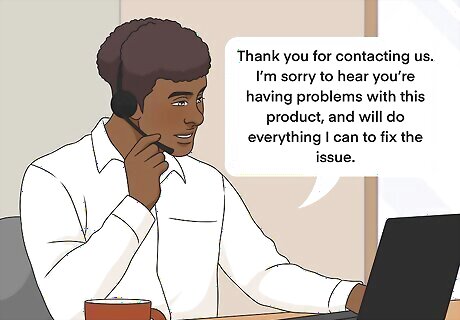
“Thank you for contacting us.” This is a good alternative to use when someone comes to you with a question, issue, or request; it expresses gratitude and acknowledgment for their willingness to communicate with you. When someone sends a complaint, it can also show them that you’re going to take their concerns seriously—which may improve your rapport with them. Example: “Thank you for contacting us. I’m sorry to hear you’re having problems with this product, and will do everything I can to fix the issue.”
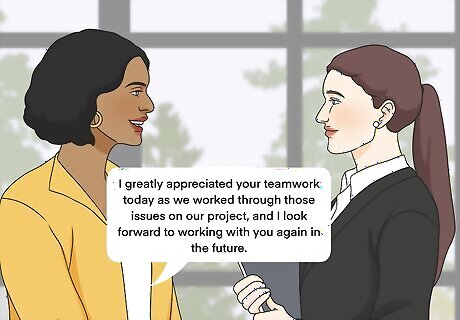
“I greatly appreciate your teamwork.” Teamwork is an important aspect of many jobs, so when someone makes the effort to be a team player, it’s worth thanking them for their professionalism and collaborative attitude. Consider writing a note of appreciation to thank someone for their teamwork; it can build rapport with colleagues and improve relationships with clients. Example: “I greatly appreciated your teamwork today as we worked through those issues on our project, and I look forward to working with you again in the future.”

“Thank you for your cooperation.” When someone helps you or works with you on a task or project, “Thank you for your cooperation” is a simple way to express gratitude. This could apply to a client or colleague—or you could use it as a manager to a subordinate. Example: “Thank you again for your cooperation. I think this project will be a great success!”

“I’d be grateful if you could oblige me in this matter.” If you have to make a formal request and keep things especially polite, “I’d be grateful if you could oblige me” is a solid choice. It’s more formal than “Thank you for your understanding,” and it communicates respect as well as gratitude for the other person’s willingness to do something that might not be part of their usual tasks. Example: “This an unusual request, but I think it will greatly pay off in the future, and I’d be grateful if you could oblige me in this matter.”

“Thank you for your compassion.” This might be an ideal phrase to use in the event you make a mistake at work. Try pairing it with an apology for any inconvenience or issue that occurred, and thank the other person (whether it’s a colleague or client) for treating you with compassion despite the mishap. Everyone makes mistakes, after all! Example: I apologize for the delay today, and thank you for your compassion as I figure everything out.

“Thank you for listening.” When someone makes an effort to listen to you, they’re also making an effort to understand what you’re saying—which is why “Thank you for listening” is another way to show someone you appreciate them taking the time to understand you. So, try using this phrase to acknowledge how someone listens to you. Example: “Thank you for listening and bearing with me through this seminar. I hope the things you learned today will be helpful going forward!” “I appreciate you sticking with me” is another great way to thank someone for listening to you speak for a while or reading through a long email thread. Example: “Thanks for sticking with me while we figured out the plan for next week.”
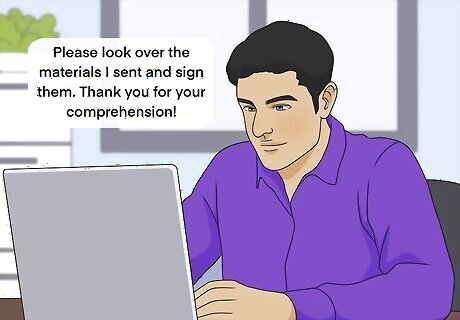
“Thank you for your comprehension.” While it might feel a little more formal or stiff compared to “Thanks for your understanding,” this phrase may actually make more sense to people for whom English isn’t their first language. In some cases, “Comprehension” translates more clearly than “Understanding,” so try using this phrase with non-native English speakers. Example: “Please look over the materials I sent and sign them. Thank you for your comprehension!”

“I appreciate your faith in my abilities.” Use this expression with a client or manager who supports you in the workplace, recommends your skills to others, or takes the time to tackle a problem with you (instead of getting someone else to help). Those actions imply that they believe in you and want to work with you—so tell them you appreciate their commitment. Example: “Thank you again for asking me to lead our new program. I appreciate your faith in my abilities.” “I value your trust” is a similar phrase that may work; after all, when a client or manager gives you new responsibilities or opportunities, it’s a sign that they trust your abilities. Example: “I look forward to giving this presentation next week and value your trust in asking me to prepare it.”
What does “Thank you for your understanding” mean?
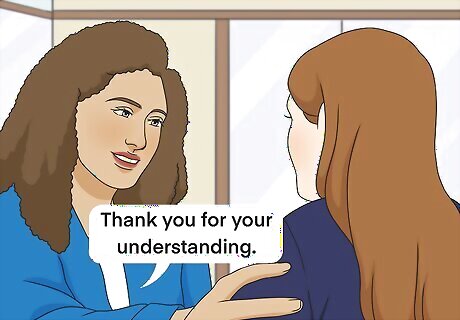
The phrase expresses thanks for someone’s patience or support. In the workplace, you might say, “Thank you for your understanding,” when you want to show appreciation for someone (such as a colleague, client, customer, or manager), particularly after delivering bad news of some kind. The phrase acknowledges they might be inconvenienced while thanking them for sticking with you. You might say “Thanks for your understanding” to: Make a request. When asking someone to perform a task that falls outside their usual duties, “Thank you for your understanding” acknowledges the significance of what you’re asking them to do—and appreciates their efforts. Express dissatisfaction. If you have a complaint about a product or service, you might say “Thank you for your understanding” after explaining the problem to show people that you appreciate their efforts to help you. Apologize for an inconvenience. When you do something that’s inconvenient to someone else (or ask them to do something inconvenient), you can pair this phrase with an apology to show people you understand their situation and appreciate their efforts to accommodate you.
Is “Thank you for your understanding” correct?

Yes, “Thank you for your understanding” is an appropriate phrase. It’s common in the workplace—and it’s also appropriate for more casual conversations or correspondence when you need to make a request (or apologize for an inconvenience). You can say, “Thank you” or “Thanks,” although just remember that “Thanks” is a more casual term. When someone says, “Thank you for your understanding,” the best reply usually depends on the situation. For example, if someone thanks you for a favor, it’d be most appropriate to say, “You’re welcome.” If someone uses the phrase to apologize for something inconvenient, respond by accepting their apology. On the other hand, if someone uses the phrase to ask you for a favor or make a request, you can respond by either confirming that you can do it or explaining why you can’t.
When to Use Alternative Phrases

Use an alternative if you’re worried about overusing the original phrase. “Thank you for your understanding” is definitely an appropriate phrase to use in most workplace situations, but if you feel like you’ve used it a lot, try switching to one of the above alternate phrases instead. In a spoken conversation, you could also say “Thank you for understanding” instead (to make the phrase flow more naturally). For example, if you said, “Thank you for your understanding,” the last time you emailed your colleague about a project, you might switch to “I appreciate your flexibility” instead.
















Comments
0 comment